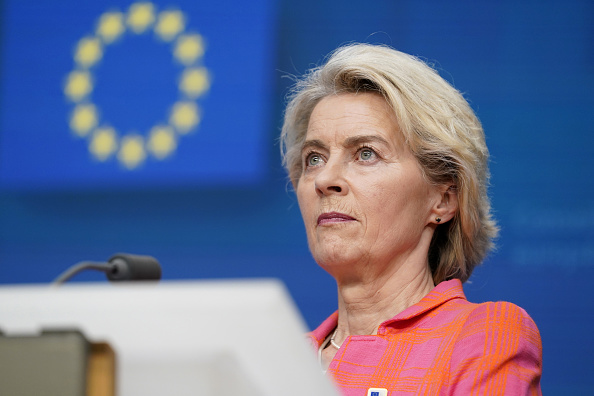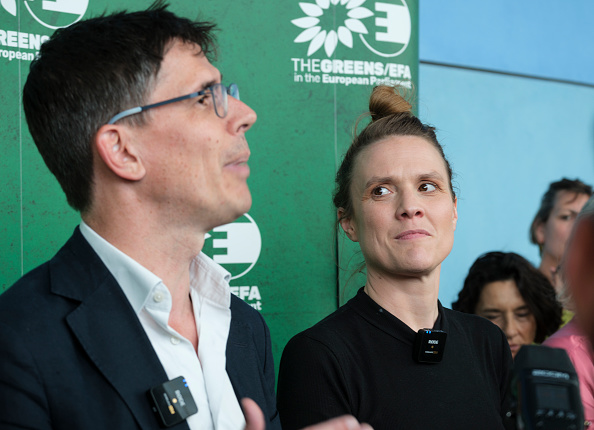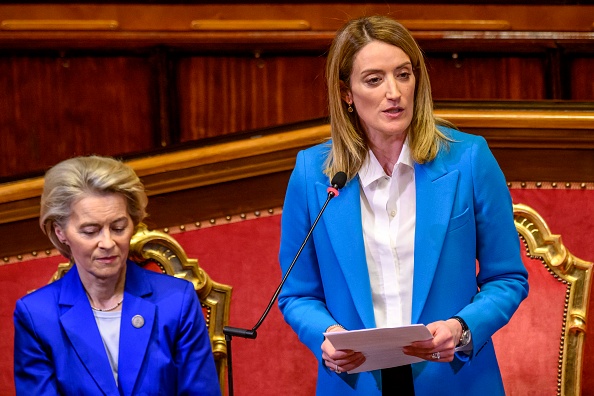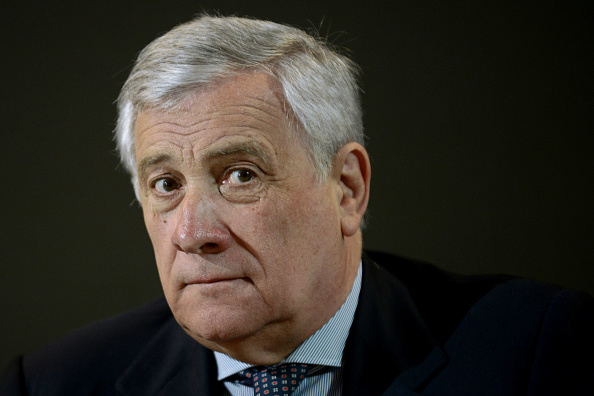The European Parliament’s The Left group, with 46 MEPs, will all vote against Ursula von der Leyen securing a second five-year term as European Commission President, after her meeting with the delegation ended badly.
“A bad start, it appears our worst fears are confirmed,” commented Spanish MEP Pernando Barrena from the Basque nationalist party EH Bildu (Basque Country Unite), the morning after the group’s June 15 meeting with von der Leyen.
However, she will receive at least some votes from MEPs in the European Conservatives and Reformists (ECR), after a July 16 meeting with that group went decidedly better for her.
Within the ECR, which now has 78 MEPs, three members from Belgium’s New Flemish Alliance and another three from the Czech Civic Democratic Party now said they will vote for von der Leyen after an hour-long meeting von der Leyen called “intense”.
New Flemish Alliance leader Johan Van Overtveldt announced he was satisfied with von der Leyen’s answers in the meeting.
Some Left group members, such as Irish MEP Lynn Boylan, cited what they called VDL’s insufficient support for Palestinians as among reasons for their decision not to back her in the June 18 ballot.
Boylan, a Sinn Féin MEP from Ireland South, said on July 16: “I’m voting against Ursula von der Leyen”, adding she would instead cast her vote to say “no to genocide and no to von der Leyen”.
Barrena attacked VDL after she “did not take a position” when asked if increased military spending would cause “a major blow to the 2040 decarbonisation objectives”, as well as renewed austerity in other areas of the budget.
The Left group’s MEPs also asked the EC President how she would respond to a US move to end aid to Ukraine should Donald Trump receive a second term as US president in November, but she did not answer their question, they said.
Finnish MEP Li Andersson said she used the group’s meeting with von der Leyen to raise the importance of the European Union increasing its “affordable housing and anti-poverty work”.
“I highlighted how the rise of the extreme right in the elections shows the need to strengthen the social dimension of the Union,” said Andersson, who will chair the Employment and Social Affairs Committee in the European Parliament’s coming term.
The Left bloc grew by eight MEPs (to 46) when Italy’s Movimento 5 Stelle joined the group on July 4– initially for a six-month period with “reciprocal observer status” to “confirm political convergence”.
In May, The Left group, together with the Socialists & Democrats (S&D), Renew Europe and the Greens/EFA, had signed a joint letter calling on von der Leyen to “firmly reject any normalisation, cooperation, or alliance with the far-right and radical parties”.
In the end, though, VDL has been able to maintain the support of the S&D and Renew and may yet attract votes from both The Greens and at least some members of Italian Prime Minister Giorgia Meloni’s ECR.
Meloni indicated on July 12 she would personally vote for VDL if Italy received a senior portfolio for its new Commissioner, expected to be European Affairs Minister Raffaele Fitto.
Other members of Meloni’s Fratelli d’Italia party have praised von der Leyen for not giving in to left parties’ policy demands on migration and climate change–actions that have cost her on the Left, but which may win her some backing on the Right.
However, the 20 MEPs from Poland’s PiS, six from Romania’s Alliance for the Union of Romanians and four French former members of the Reconquête! party have all confirmed they will vote against von der Leyen.
Meanwhile, the Left group’s co-chair, French MEP Manon Aubry, argued: “We are the primary opposition to the von der Leyen coalition.”
Its members voted against her first term in 2019, with its co-president at the time, Martin Schirdewan, describing her responses as “insufficient” after her first closed-door grilling with the group’s MEPs — which went badly, too.





